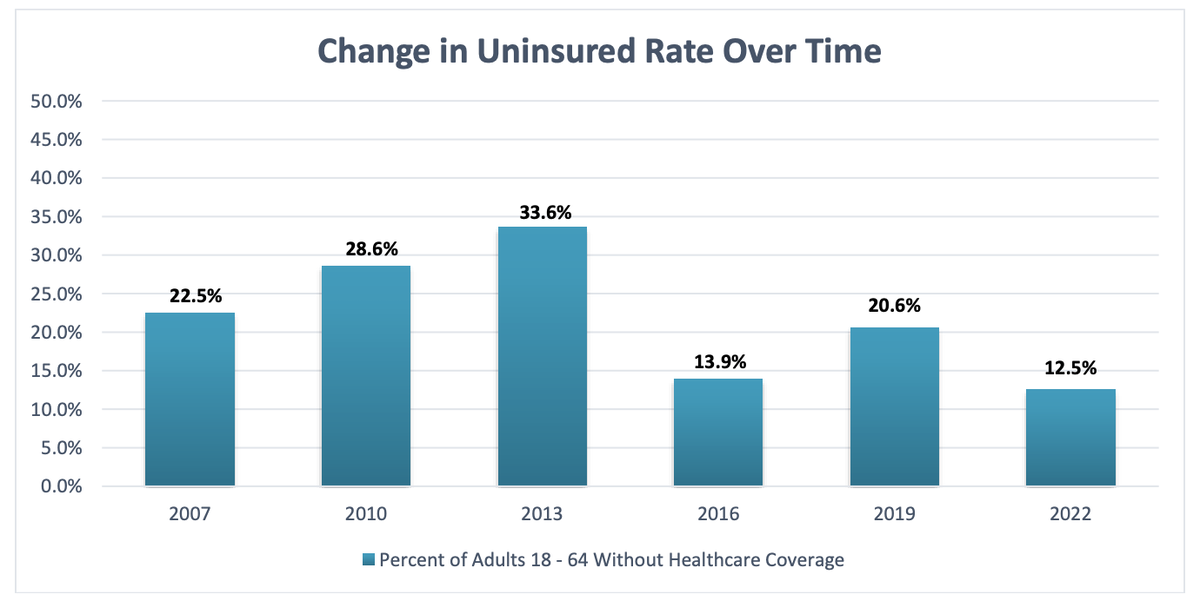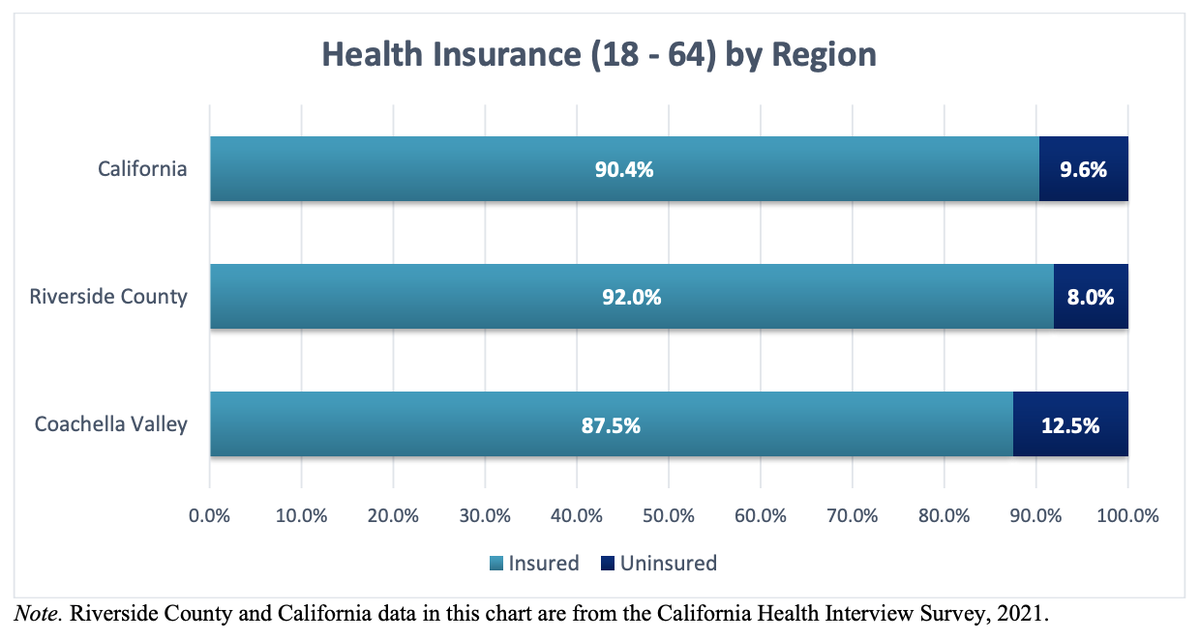Coachella Valley health report predicts more adults will lose insurance as pandemic relief ends
A nonprofit called Health Assessment and Research for Communities (HARC) released data Tuesday that provides a comprehensive assessment of the Coachella Valley following the worst of the COVID-19 pandemic.
The data was collected among 18,000 Coachella Valley residents in 2022. It was a survey mailed to residents with a $2 stipend.
The HARC survey is conducted every three years and covers health insurance, health care access, significant diseases, mental health, socio-economic needs, and more.
According to the report, 12.5% of working-age adults (25,207 adults ages 18 to 64) are uninsured in the Coachella Valley. That is the lowest proportion of uninsured working-age adults in over a decade, as shown in the chart below.

The report says, "It is highly likely that the lower rates of uninsured working-age adults in 2022 are related to the Medicaid rule changes during the COVID-19 pandemic."
The report notes that when the federal government declared COVID-19 a Public Health Emergency, it provided many people across the country the chance to get on Medicaid and stay on it in situations where they would have been disenrolled. In California, more people could access the Medi-Cal system, the state's Medicaid system, due to the Department of Health Care Services allowing more than 100 flexibilities to the Medi-Cal system. It allowed many people to obtain Medi-Cal who might not otherwise be eligible.
However, according to the report, many adults will likely become uninsured over the coming months. Based on the Consolidated Appropriations Act of 2023, the requirement to provide continuous coverage via MediCal will end on March 31, 2023. So, the report says the progress made from 2019 to 2022 will likely be reversed in only a few months.
The report shows the Coachella Valley made progress in the last three years in reducing the percentage of working-age adults who are uninsured. However, the valley is still trailing behind Riverside County and California, as shown in the chart below.

According to the report, of the more than 25,000 uninsured working-age adults, most say their lack of insurance is the inability to pay premiums.
The executive vice president of clinical services at Desert Oasis Healthcare, Dr. Brian Hodgkins, said people can reach out to DOHC for an insurance expert for guidance.
"This medical exclusion is going away. And if people don't realize this, this is very important now," said Hodgkins. "The recertification process is going to be slowly rolled out over the next nine to 12 months, which by the end of it, it's going to be over a year before everyone who has a certain time to recertify your medical benefits."
As CEO of Desert Healthcare District, Conrado Barzaga has been working to build a stronger healthcare infrastructure in response to fewer people being insured.
"We actually bought a mobile unit. And we're taking that mobile clinic to different communities and providing free health care," said Barzaga.
Barzaga said it's important anyone currently covered by Medi-Cal makes sure their address and contact information with riverside county are up to date. That way, the county can send you information needed to recertify if you qualify.
"The next few months are going to be very difficult for people who have not been up to date with the information that they have provided to the health plans," said Barzaga.
Vice president of strategy at Inland Empire Health Plan (IEHP), Thomas Pham, helps people coordinate their healthcare coverage. He said about 250,000 people in the Inland Empire are at risk of losing coverage.
"We have 50 person team, and their full job is dedicated to [walking people] through the process, helping them complete the step by step," said Pham. "If they have all things updated with the county, and they receive a packet from the county if they receive that renewal, there is a lot of help. So they can call us."
IEHP is a managed care health plan dedicated to helping people get healthcare coverage. You can find resources on their website here. You can apply for no-cost health coverage over the phone; call the IEHP Enrollment Advisors at (866) 294-4347, Monday – Friday, 8 a.m. – 5 p.m.
Are you looking to keep your Medi-Cal coverage?
According to the Department of Health Care Services website, "As COVID-19 becomes less of a threat, California will restart yearly Medicaid eligibility reviews using available information to decide if you or your family member(s) still qualify for coverage." If you have Medi-Cal, DHCS says to follow these steps: update your information (address, phone number, email address), sign up for email/text updates to know what is happening with Medi-Cal renewals, and check your mailbox since your county will mail you a letter about your Medi-Cal eligibility. You may need to complete a renewal form.





